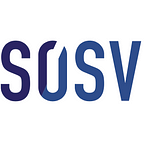Five questions with Patrick Lee, co-founder of Rotten Tomatoes
About Patrick Lee
Patrick Lee is a co-founder and the former CEO of Rotten Tomatoes (rottentomatoes.com), a leading entertainment website focused on movie reviews and news and one of the top 700 most trafficked sites in the world. A serial entrepreneur, he founded six startups across three countries (US, China, Hong Kong), with four in the intersection of technology and entertainment. For the last decade, Patrick has been mentoring tech founders and been involved in various arts and humanitarian projects.
- Advisor to Casetify, ChargeSPOT, Credder, DNArt Inc., Instaread, Kiwi Campus, Leo AR, Magnesium Film, Oishii, WePloy, and Zeuss Technologies.
- Current or former mentor at SOSV, Berkeley SkyDeck, Blue Startups, Founder Institute, Mentorbox, Berkeley LAUNCH Startup Accelerator, and more.
- Core Team at Gold House Collective. Advisory Council at Asian Pacific Fund. Investor in Modernist.
- Executive Producer of “The Heavenly Kings”, directed by Daniel Wu (Best New Director, 2007 Hong Kong Film Awards).
- Attended math/science/computer science magnet programs for intermediate and high school in Maryland. Holds a BA in Cognitive Science with an emphasis on Computer Science from the University of California at Berkeley.
Five questions with Patrick
Q1: How did you get to where you are today?
I jumped into doing startups straight out of school. Did six startups over the span of 23 years spanning the Bay Area, China, and Hong Kong. Since then I’ve been taking a break the past two years thinking about what’s next. During that time I’ve been speaking, mentoring, putting together events, and helping out various organizations and charities for fun.
Q2: What advice do you have for someone getting into your space? Alternatively, what advice should they ignore?
If you decide to do a startup, the number one thing is to keep your company focused. One feature, one category, one market to start and if (and only if) it works, then grow from there.
Q3: What excites you about the future of technology?
Artificial intelligence is the next wave after computers, the internet, and mobile (in that order). It will become more and more integrated into our lives to the point where it will be built into everything just like computers, the internet, and mobile are today. Biotechnology is also advancing at a rapid pace. These two technologies will have a huge impact on mankind and society moving forward.
Q4: What have you changed your mind about in the last few years?
I never really cared about money. It wasn’t the motivating factor for me to work on startups. Now that I’m older, however, I’ve really begun to value time. And I’ve come to realize that money can give you time. If you have enough money, you can retire and double the number of waking hours available to you. Or you can get a nanny, or cook, or housecleaner, etc. So if you value time, money is still important.
Q5: What have you learned about building great company culture?
Early on, the most important thing you can do for company culture is grow. If your growth is flat or declining, morale and culture will be bad regardless of how many parties, free food, and other benefits you give to your team.
Extra question: What is one important truth that few people agree with you on?
Universal Basic Income is not the answer. We shouldn’t have a large portion of the population getting paid to do nothing. We ideally should reduce that population to zero. My solution to do that: pay people to go to school. More education directly correlates with having fewer kids and having kids later (both of which help reduce the population). And more education gives people additional skills to find work on their own and not have to rely on UBI.
Originally published at https://mobileonlyx.com on January 16, 2020.
Keep up with the SOSV community. Subscribe to the Newsletter, and connect on Facebook, LinkedIn, and Twitter!
